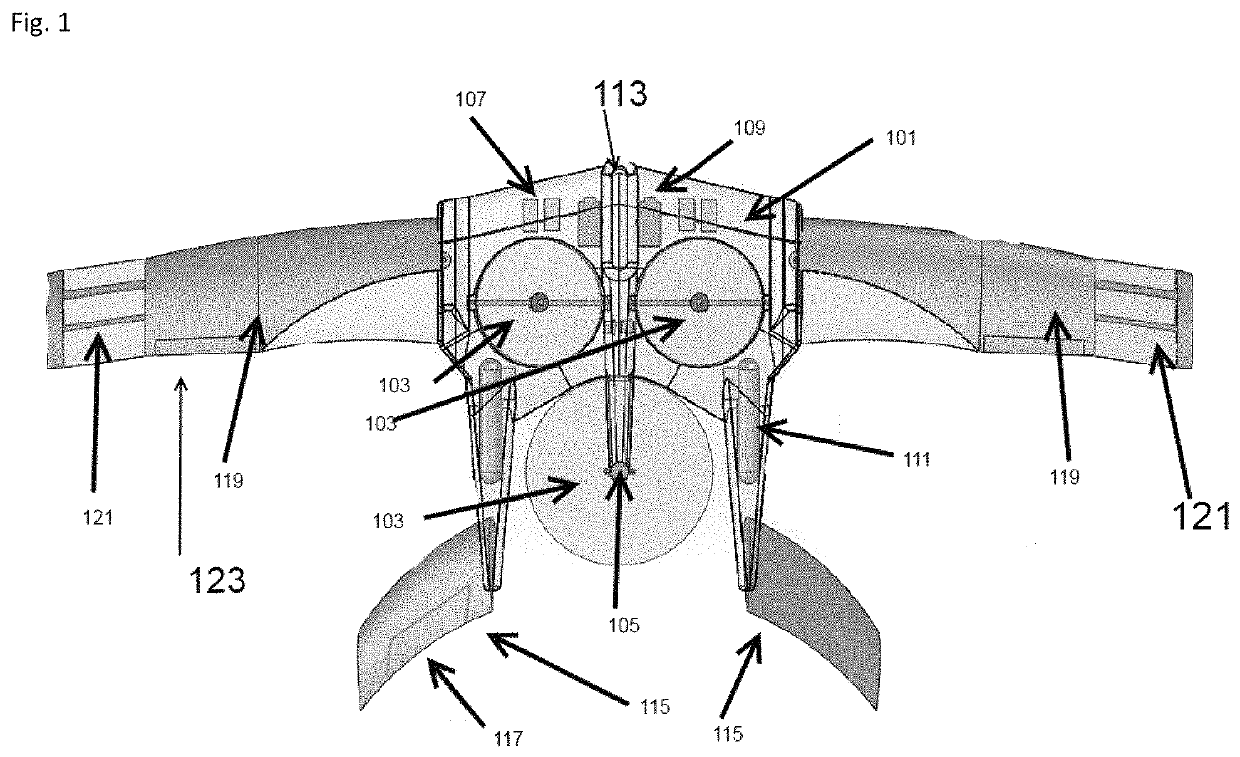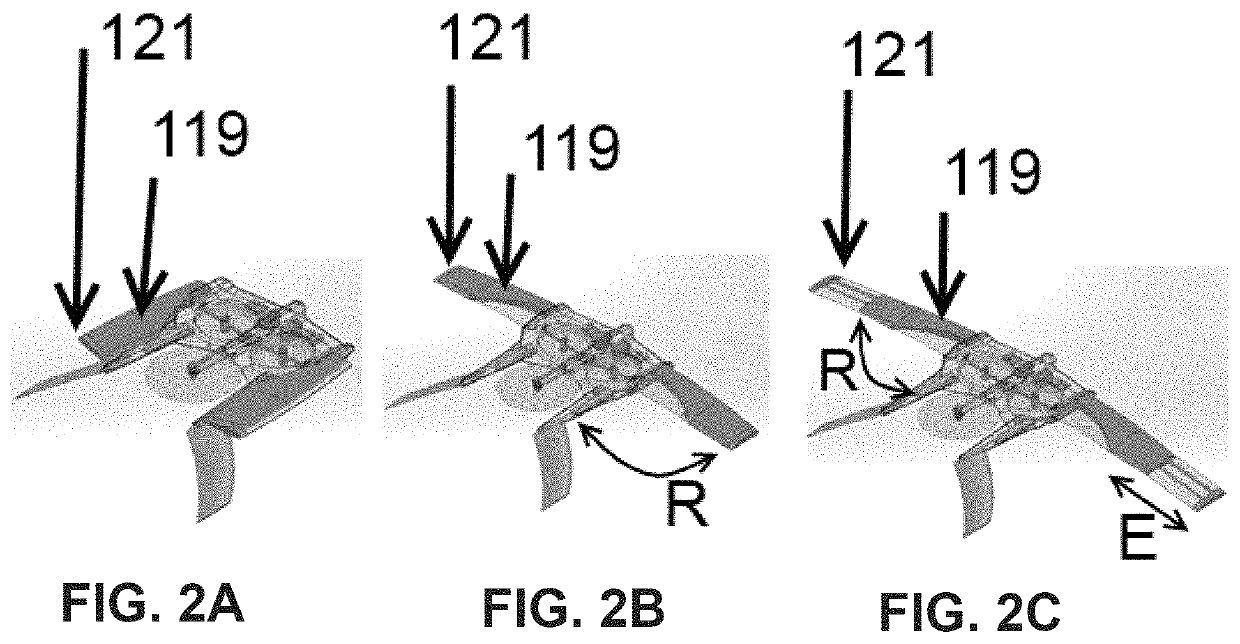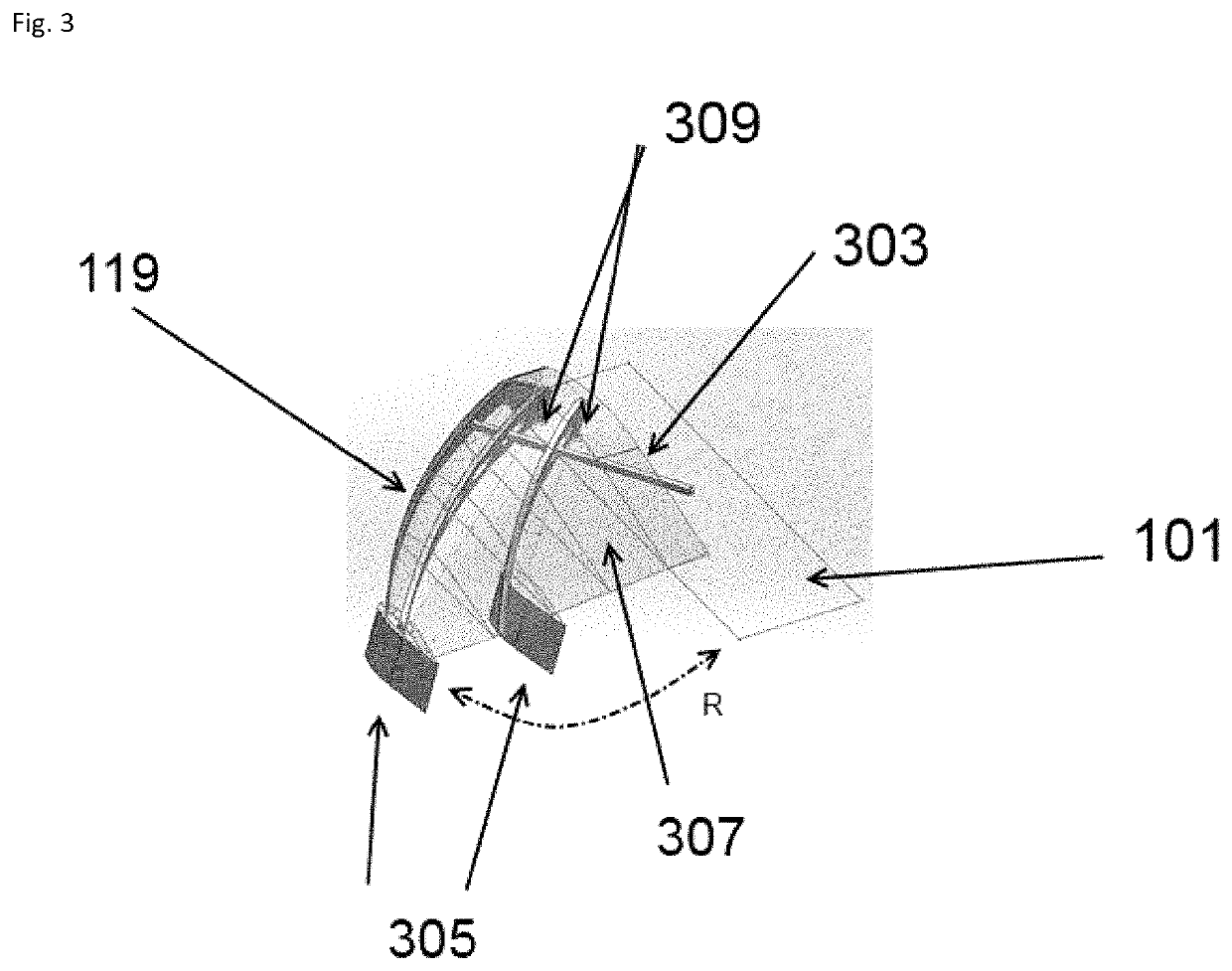Variable geometry airframe for vertical and horizontal flight
a variable geometry, vertical and horizontal flight technology, applied in the direction of vertical landing/take-off aircraft, transportation hydrogen technology, transportation and packaging, etc., can solve the problems of rotor-based aircraft being overcome, unable to multi-directional maneuverability of fixed-wing aircraft, limited forward speed and endurance, etc., to reduce the amount of leading edge, the effect of stable transition
- Summary
- Abstract
- Description
- Claims
- Application Information
AI Technical Summary
Benefits of technology
Problems solved by technology
Method used
Image
Examples
Embodiment Construction
[0016]By way of overview and introduction, the present invention is directed to a vertical takeoff and landing (VTOL) device in the form of an unmanned aerial vehicle (UAV) that implements a hybrid wing design that allows for improved VTOL performance as well as improved forward flight (FF) performance. The UAV uses a folding and extensible wing configuration to improve lift and drag performance relative to fixed wing or rotor winged aircraft. Those possessing an ordinary level of skill in the art will appreciate that the present embodiments have a broader applicability in the field of air-borne vehicles. Particular configurations discussed in examples can be varied and are cited to illustrate the principles of exemplary embodiments
[0017]With reference to FIGS. 1 and 2, the present invention is directed to an airframe 101. In a particular arrangement, the airframe 101 is formed out of carbon fiber or a similar material having a high strength to weight ratio. In another configuration...
PUM
 Login to View More
Login to View More Abstract
Description
Claims
Application Information
 Login to View More
Login to View More - R&D
- Intellectual Property
- Life Sciences
- Materials
- Tech Scout
- Unparalleled Data Quality
- Higher Quality Content
- 60% Fewer Hallucinations
Browse by: Latest US Patents, China's latest patents, Technical Efficacy Thesaurus, Application Domain, Technology Topic, Popular Technical Reports.
© 2025 PatSnap. All rights reserved.Legal|Privacy policy|Modern Slavery Act Transparency Statement|Sitemap|About US| Contact US: help@patsnap.com



